Newspaper articles mentioning Samuel, (my gt gt grandfather 1863-1921)) John, his brother (my gt gt uncle,1848-1925) and brother Daniel Frederick Denton, (my gt gt uncle, 1846-1912) and their father Daniel Denton (my gt gt gt grandfather, 1804-1869).
Stroud Journal – Saturday 25 April 1868
CHALFORD INSTITUTE. The course of lectures and entertainments arranged by the committee of this Institute was terminated on Thursday evening. It is not long since that we recorded the opening of the society under very favourable auspices, and the success that has attended it until the present time has exceeded in every respect the sanguine expectations of its warmest friends and supporters. Previous to its formation Chalford lacked the means of affording useful information and rational recreation to its inhabitants generally, and it is encouraging to find that the efforts made to supply this want have been largely appreciated and are still highly-valued. The arrangements for the winter season were entered into with much spirit and discretion, and carried into effect in a manner that has elicited entire satisfaction. The committee have evidently taken ” Excelsior” as their motto, and determined that every bill of fare should be superior to the one that preceded it. With commendable wisdom they reserved the best evening’s entertainment yet given, with which to close the programme of the season. It was a decided success; everybody seemed to enjoy it most heartily, and if the enthusiastic applause that greeted the execution of each selection is to be taken as a criterion the audience were never happier or better satisfied in their lives. The mom in which these gatherings are usually held being too small to accommodate the large number that on almost every occasion seek admission, it was deemed desirable to overcome this difficulty by securing the spacious schoolroom belonging to and adjoining France Chapel, Chalfont Kill, which was kindly placed at the service of the committee. Although this building is some considerable distance from the centre of the village, and has to be reached by walking up a steep hill, that reminds the pedestrian of climbing to the summit of a mountain, it was well-filled some time before the hour for commencement. Mr. W. Dangerfield, the respected President of the society,—and whose deep interest in its welfare remains unabated—in stepping forward to address a few words was received by the audience in the warmest possible manner. He said they were met to enjoy the last entertainment of the season, and the great success which had attended the formation of the Institute was encouraging to the offers and committee, and afforded them much satisfaction. It was a proof that their labours had not been in vain, and he hoped that in the future the society would increase in numbers and usefulness. Not to be behind other societies in the neighbourhood they contemplated holding an open air fete in the course of the summer, publicity of which would be given in due course. He trusted that the library belonging to the Institute was properly valued, and if at any time any member should have a complaint to make, or a suggestion to offer for its improvement, and would convey it to the right quarter, it would immediately receive at the hands of the committee the attention which it deserved. The reading-room would remain open during the summer season the same hours as it had through the winter months. He wished, before sitting down, to congratulate them on the accession to their numbers of several lady members, and he trusted that the fair sex would continue to support the society, and manifest constant interest in its progress. (Loud cheers.) The musical entertainment then commenced, and was under the efficient direction of Mr. Samuel Denton of the Thrupp,

Samuel and Joanna Denton about 1863
to whose skill and labours the committee and the audience were indebted for the excellent treat provided. The four glees “Hark the lark.” ” I love my love,” ” May day,” and ” From Oberon” went off smoothly and well, the second being loudly encored. The trio “Winds gently whisper” by Mr. D. Denton and his sons was nicely sung and well received. Mr. G. Warner sang with much feeling “My own, my guiding star” for which he was rewarded with warm acclamations. The duet “Tell me where is beauty found” was sung by Mrs. and Miss Morse. These ladies are well known to Stroud audiences, and they had not done with the execution of their task at Chalfont before the company became delighted with their performance. On each appearance, whether together or alone, they were warmly encored. Mr. J. Denton’s cornet solo, “Le Carnival de Venice,” was highly-appreciated for the skilful manner in which it was executed. This was followed by a duct given by Messrs. S. and D. Denton ” I know a bank.” The appearance of Mr. Charles Gardner in ” The Bay of Biscay” brought down the house. He sang in his own hearty style ; and being repeatedly redemanded, gave ” Kit the Cobbler,” which seemed immensely to amuse the audience. In the second part of the programme, Mr. Gardner was equally well received, and sang even more effectively than before. His song was “The Mermaid,” the chorus being taken up by the audience with great gusto. Again he was encored, and gave that sensible song Do as you would be done by,” resuming his seat amidst the plaudits of an appreciative assembly. Miss Morse was redemanded in her effective rendering of ” The bailiff’s daughter.” The singing of the duet “The Gipsy Countess”—Mrs. Morse and Mr. Denton—was a most pleasing part of the entertainment. The nice style in which it was done enamoured the audience, and they demanded its repetition. Mr. D. Denton was encored in his singing of “The death of Nelson.” The programme was exhausted by ” The tickling trio,” the parts being taken by Messrs. Teakle, Warner, and Govier. The audience caught the contagion, and roars of laughter at times drowned the voices of the singers. If the audience desired to show their appreciation of a selection of good music, by repeated encores, they did it with a vengeance, for out of a programme of fourteen pieces there were no less than eleven redemanded, in each case the request being complied with. Mr. T. Law’s moved a vote of thanks to Mr. Denton and his friends, for their excellent entertainment, kindly given at the cost of much time and labour. Mr. Drew, Jun., seconded it, Mr. W. Dangerfield supporting, and putting it to the meeting. It is needless to say that it was carried with the utmost enthusiasm. Other votes of thanks were also carried, including, amongst the number, one to Mr. Dangerfield for the valuable help he had rendered in promoting in every way the prosperity of the society. The recipients having suitably acknowledged the .votes, the entertainment was concluded, by the company singing ” God save the Queen.”

Samuel and Joanna in later life – and their dog!
Samuel and Joanna in later life – now living in Ardwick, Manchester
Stroud Journal – Saturday 07 August 1869
Mr. Daniel Denton, of the Thrupp, died yesterday (Friday) morning from the result of a singular accident. He ran a tenter hook into his thumb a fortnight ago, and slight though the accident wax it led to mortification, and then death. Mr. Ball held a formal inquest at the Fountain inn, the Thrupp, last evening.
(My gt gt gt grandfather)

Daniel’s wife, Elizabeth, born in 1806.
Stroud News and Gloucestershire Advertiser – Friday 24 May 1872
STROUDEND CHURCH AND SCHOOL. In noticing the Whitsuntide festivities which took place in connection with the Stroudend National School, we cannot allow this opportunity to pass without taking a somewhat retrospective glance at the spiritual and educational condition and requirements of this portion of the borough of Stroud. As our readers are aware, the spiritual wants of the inhabitants have been in a great immure provided for, by the erection some few years ago of the Iron Room which was designed in the first place by the Rev. T. D. Wintle as an orphanage, but on the re-building the Stroud Parish Church, it was kindly placed by him at the disposal of the inhabitants of the district, and he generously gave his services gratuitously. On his retirement Mr Croome purchased the building, and it has been continued by him ever since as a kind of Chapel of Ease to the Church at the Shad. Of late years, however, owing chiefly to the rapid springing into existence of the Uplands, and the consequent increase in the population of this suburb, the general school accommodation of the town was found to be both inconvenient and inadequate, and on this account, and doubtless stimulated by the late Education Act, some of the leading gentry of the neighbourhood, principal amongst whom were Mr. T. M Croome, the respected minister of the Iron Room ; the Rev. R. D. Mono , vicar of the Sled ; and Mr. William Capel, of the Grove, acted as a committee for erecting a suitable school, the first-named gentleman generously giving the land ; and after certain negotiations Mr. John Berryman was ultimately accepted both as architect and builder. The work was at once proceeded with, and on the 22nd of December last the opening of the present Stroudend National School was inaugurated. The school is a stone building, in a very plain ordinary Elizabethan style, with an open span roof, boarded and varnished, the whole of which is wrought. It is 45 feet long, by 25 feet wide in the clear, and 12 feet high in the side walk The cost of the building including the land and everything, we understand was about £400. Soon after the school had been erected, it was thought clearable to desirable to remove the Iron Room from its somewhat isolated position in the Slad Road to where it would be in closer proximity to the school, and this was accordingly effected a month or two after the opening of the latter, and now both stand contiguous to each other, at the Uplands. The church—or rather the Iron Room, by which it is better known—is now well filled at every service, many worshippers from the more central parts of the town flocking together to hear the outpourings of a generous and truly Christian heart, for none can deny that the beloved minister, Mr. Croome, is imbued with those virtues, seeing that he not only devotes his whole heart and soul to the spread of God’s Word, for no stipend whatever, but visits the parishioners, and in fact perform the general work of a clergyman ; while in a great measure he pays the necessary expenses of the building in which he so faithfully, so zealously, and so successfully, carries on his ministry. In connection with this place of worship, a choir is formed, and hitherto has been under the gratuitous tuition of Miss Davies, whose untiring energy in the cause of both the church and school has been equalled only by that of the worthy minister himself. She has, indeed, brought out the members of the choir to a state of efficiency alike creditable to her own exertions as to themselves, and though we cannot but regret that she has relinquished her onerous post, yet at the same time we cannot but feel satisfied that the arduous duties of each an office has been taken out of her hands. We indeed, trust that her self-denying efforts may be directed in an equal degree, in some other channel perhaps more congenial to her taste and feelings, to the furtherance of God’s work. Mr. Samuel Denton has been appointed choir master, to succeed Miss Davies, and if he devotee the same painstaking energy to the choristers which his predecessor has done, success will undoubtedly crown his efforts. The services at the Iron Room are of a most hearty character, and are conducted on Church of England principles, but as the Minister has not taken up all the Church degrees, he is prohibited from reading some portions of the Prayer Book services, and they are necessarily omitted. A fine-toned harmonium accompanies the choir, which is alternately presided at by Miss Card and Mr. George Holloway, jun. The hymnal in use is ” Hymns of Grace and Glory,” which was compiled by the Rev. Graves Walker, the newly-appointed pastor of Trinity Church. As to the school, we have already stated that it was opened some four or five months ago, and we can truly say that even in this short period, it as already proved its necessity. Though no old school previously existed, there is now something like a hundred scholars. Mr.

Louis Denton and sister Kathleen on the bench dedicated to Samuel Denton and his son Herbert Vernon at Holy Trinity Church, Stroud. The bench is no longer there. Photo by Bernard Denton, Louis’s son, taken October 1989
and Miss May are the respective master and mistress, and under their supervision the school appears to be kept in good order, and the children soundly and intelligently taught. A Sunday School is held in the same building on that day, which is well attended both by the day scholars and others. In both the Church and School an able auxiliary has been found in Mr. C. Card, who devotes a great deal of attention to their welfare. A drum and fife band has also been formed out of the scholars, under the bandmastership of Mr. Govier, and considering that the performers are all young lads, and that they have been under training only a few months, we must congratulate, both master and boys on the high pitch to which they have attained. But to our theme. The children both of the Day and Sunday Schools assembled at the school-room on Whit Monday afternoon, to the number of about 150. A number of prizes were presented to them by the Rev. R. D. Monro, and some brief addresses were made by that gentleman and Mr. Croome. This being over, they arranged themselves in processional order, and headed by their respected minister, marshalled by the several teachers, and accompanied by their drum and fife band, marched round the Uplands and the neighbourhood, the band playing some very lively tunes in first-rate style. The procession was relieved at intervals with flags and bannerettes, bearing suitable mottoes and texts, in varied colours, amongst which we noticed, “By love serve one another.” ” Righteousness exhalteth a nation,” ” Let brotherly love continue,” and “Hitherto the Lord hath helped us,” whilst one neat design bore the words, “Stroundend Sunday School.” When this marching along was concluded, all adjourned to the schoolroom to partake of a bountiful supply of cake and tea., and which had been in the meantime provided under the superintendence of Mrs. Croome, Mrs Lindsey Winterbotham, and Miss Davies. The little ones, of course, enjoyed this part of the proceedings immensely, their pleasure being undoubtedly enhanced by the many kind words a which ever and anon fell from the lips of their generous benefactors, who, as well as the teachers, were most assiduous in caring for the wants of the children. After tea they proceeded to a field near Mr. Haycroft’s house, but there came such a downpour of rain which compelled then, to return to their school The band, however, and some of the children marched to the Sled, and, on returning, were reinforced by the drum and fife band connected with the village. In this amalgamated form they again discoursed sweet music in and about the Uplands, bringing their performance to a close near the school about nine o’clock, and from whence the Sled band went home. A further supply of refreshments had been provided in the school, and the children were entertained a second time. A few remarks were then made by Mr. Croome, and the children having sang the National Anthem and given hearty cheers for their benefactors, this happy juvenile gathering dispersed, evidently delighted at the day’s proceeding, even though somewhat “dampened” by the occasional showers which visited us. On Whit Tuesday, a musical entertainment was given at the Stroudend School, by the members of the choir and some friends. The room was filled with a highly appreciative audience, and the following was the programme :
Selection: Darling Nellie Gray
Glee: Men of Harlech – The Choir.
Song: Excelsior – Mr. S. Denton.
Pianoforte Duet -Overture from “Il Tancredi.” Miss F. Davies and Miss C. Handley. Song: Angels ever bright and fair.” Mrs. Croome.
Vocal Duet: Music and her Sister Song. – Miss Davies and Mr. S. Denton.
Song: The Pilot.” – Mr. Govier
Vocal Duet-” The Swallow’s Flight.” – Mrs and Miss F. Croome.
Part song: God bless the Prince of Wales – The Choir.
Selection-” The Warrior’s Joy.” – The Band.
Song- “The Dream.” Mrs Croome
Glee: “See our oars with feathered spray” – The Choir.
Pianoforte Duet: Miss C. Handley and Miss Davies.
Song: “The Blacksmith’s Son” – Mr. Govier.
Duet: “What are the wild waves saying?” Miss Davies and Mr S. Denton.
Chorale: “Slow In the Eastern Sky,” The Choir.
Vocal Duet: “The Elfin Echo” Mrs. and Miss F. Croome.
Song: “An Englishman am I” – Mr. S. Denton.
The National Anthem.
The various pieces were capitally performed throughout, especially taking into consideration that several of the artists made their debut in public on this occasion. In the fine song of the ” Pilot ” Mr. Govier’s vocal powers were heard to great advantage, and evoked a hearty encore. Mrs. Croome received a like compliment in her song of ” The Dream,” which was very nicely rendered, and in response sang “The Danube River” with charming effect . In the glee ” See our oars,” the choir were re-demanded and Mr. Govier shared his former fate in singing ” The Blacksmith’s Son “—he was loudly encored. Mr. Denton, too, met with quite an ovation after his second song, and replying he gave his old favourite, “The Village Blacksmith” with great spirit and vigour. Miss Davies sad the other performers were more or less cordially welcomed, and without exception the entertainment passed off admirably and gave general satisfaction. After the entertainment, the singers were invited by Mr. Croome to supper, where they were treated in the most liberal manner, the choicest of viands being placed at their service. A pleasing feature in the evening’s entertainment was the presentation to the pastor of a handsome Bible and Prayer Book, by the teachers of the Sunday School. Mr Croome, who was evidently taken by surprise and labored under considerable emotion expressed his heartfelt thanks to the teachers for their valuable present and spoke of the high esteem in which hw should ever regard the books though he felt that he was hardly deserving of such a gift. He also spoke at some length on the great assistance he had received from miss Davies, paid a well deserved complement to her for her zeal and Christian piety and returned her his most heartfelt thanks. In the course of the proceedings votes of thanks were accorded to Miss Card and Mr George Holloway, jun., for their kind assistance in presiding at the harmonium; also to Mr Govier for his perseverance with the band; and suitable presents were also given to the five most regular attendants at choir meetings. Benjamin Evans, Andrew Price and Alfred and Maury Bemis. Altogether the Whitsuntide festivities of 1872 will long be remembered in connection with the Stroudend church and school and we hope it will be but the inauguration of many more equally bright and happy Whitsuntides in the future.
Stroud News and Gloucestershire Advertiser – Friday 15 June 1877
THE WHITEHALL CONCERT. —The boys of the Whitehall school broke up on Wednesday for their few weeks of midsummer holiday, and yesterday there were shown in the room the pencil and crayon drawings which they have executed during the half-year under Mrs. Chapman’s supervision. The collection was numerous, and suggested care and industry and intuitive power on the part alike of the teacher and the pupils. A ” Diana Vernon,” by Mabbett, was shown by Mr. Norton in George-street. We may mention also a couple of dogs after Landseer, a French hound, and an “Ecce Homo” that were very beautiful ; the landscapes , too were neat; and some copies of “Our Jack” and a winter scene from music sheets were creditable, as were likewise two copies of a sick terrier and rats. Last evening, at seven o’clock, the boys and their parents and sisters and friend, crowded into the Bedford-street chapel schoolroom, lent for the purpose, and formed for two hours a thoroughly interested set of listeners to the items of a long programme offered to them by a numerous glee party made up of the pupils and helpers, old and young, girls and men and women. The scene was merry, for the boys had come to listen and laugh and clap, and they carried out their purpose to the full. The Rev. J. Park took the chair, and the conductor and accompanyist was Mr. Samuel Denton.
The programme ran thus:
duet pianoforte. Miss Holmes and Mr. Denton ;
part song, “The village choristers,”
glee, “May Day;”
duet, “Come o’er the moonlit sea,” Miss Burrell and Master Smart ;
song, “Oh ! charming May,” Miss Bessie Chaman
quartet, “Come where the cowslip bloweth,” Miss Burrell, Master Smart, and Messrs. Denton and Nash ; Samuel’s wife’s maiden name was Nash and she had 14 siblings!
part song, ” Let the hills resound,” song,
“Oh, how delightful,” Mrs. Powell;
duet, “I know a bank,” Misses Chapman and Burrell ;
glee, ” The chough and crow” ;
song, ” The mail of Arcadie,” Miss Kate Marmont ;
song, ” Love’s request,” Mr. Denton;
trio, “Winds, gently whisper,” Miss Beane Chapman, Master Smart, and Mr. Gooier ; song, ” Hark the evening belle,” Miss Burrell ;
part song, “I love my love.”
Then Mr. Philip Powell stepped from a side room, and his pleasant face was the occasion for a general clap, and everybody laughed as he sang ” I’d like to be a little boy again,” accompanied by his wife, and he had to go back again and give the comic song, ” They all have a mate but me;” and, after the glee ” From Oberon in fairy-land,” he and she repeated the effect by the duet, ” Love and pride,” and were called for again, but had to excuse themselves. Then the national anthem was sung, and the concert was over about nine o’clock. There had been some speaking during the evening. The chairman had said a few words, and Mr. Thompson had offered thanks to him and to the chapel trustees and to those who helped in the singing. The master of the Whitehall school likewise, the Rev. W. Chapman, had spoken thus as to his work and his pupils—”The school that I have for some years conducted is this town testifies to its practical usefulness. With honest pride, I can point to many young men educated at Whitehall who are honourably making way in the various spheres they occupy. It is a source of real pleasure to myself to know that their scholastic career is a pleasant memory. Many are the seductions that parity young persons into wrong courses; but I do not know a boy at present under my care whose future is not hopeful– and this is much to say. I regret that classics are at a discount in Stroud, and that boys do not remain a longer period at school before they fluidly leave their studies. Stroud manufacturers make goods that will sell—little now of the old broadcloth once so famed. So teachers are compelled to educate their pupils for immediate utility in the counting house and other commercial spheres. Yet their refined tastes, accurate knowledge, and true perseverance find an ample remuneration—perhaps more ample than is the eve in professional life. Hereafter, none but boys who will endeavour to learn and work and who can appreciate what I can teach them shall remain in my school. My reason for this determination is that I wish to be more deeply graven still on the hearts of those who during the remainder of my career shall be my scholars. I can bide my time for select pupils, and, if my health holds good, I will.” A charge was made for the tickets in order that the profits might be given to the Stroud Hospital.



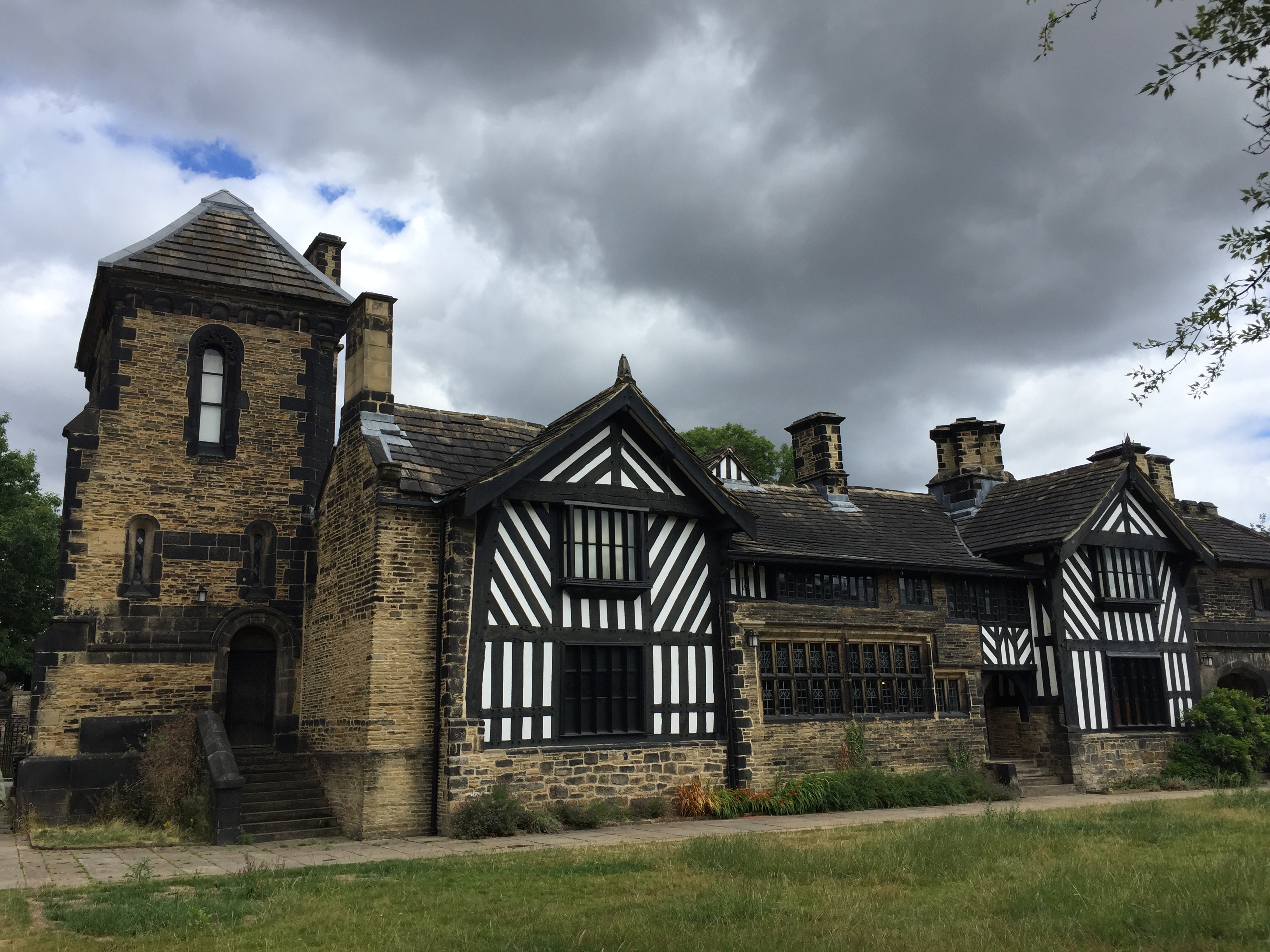





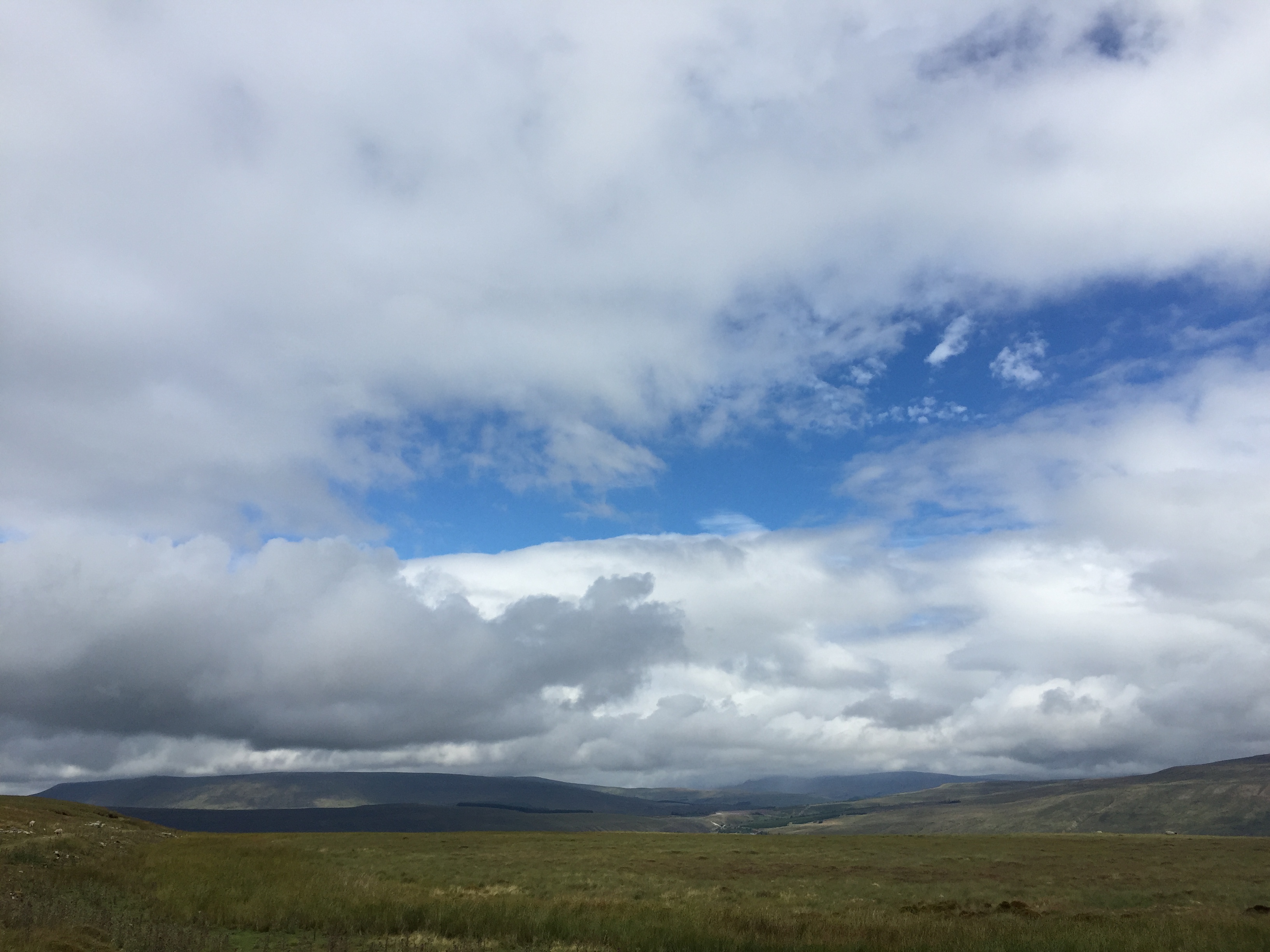


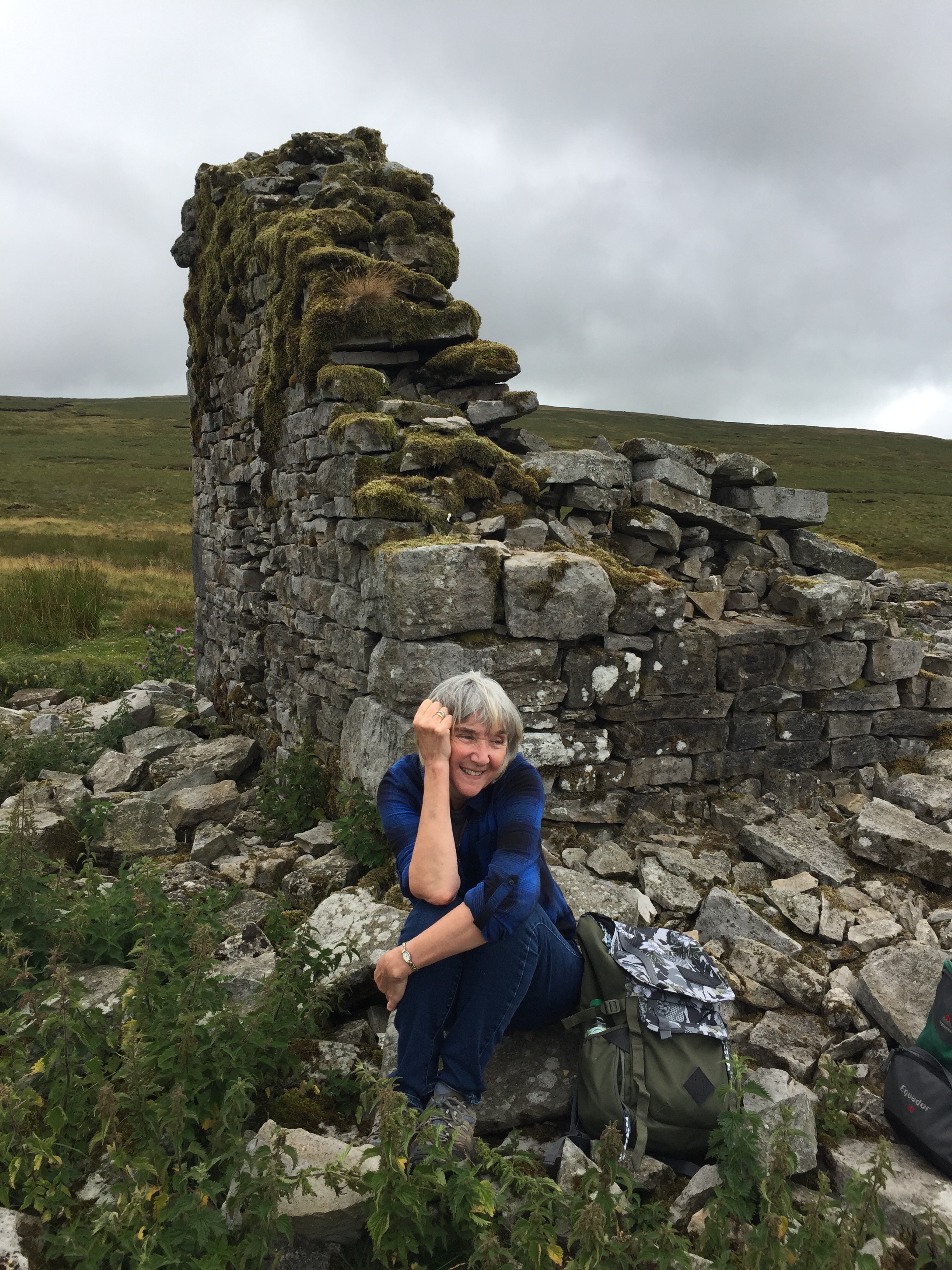




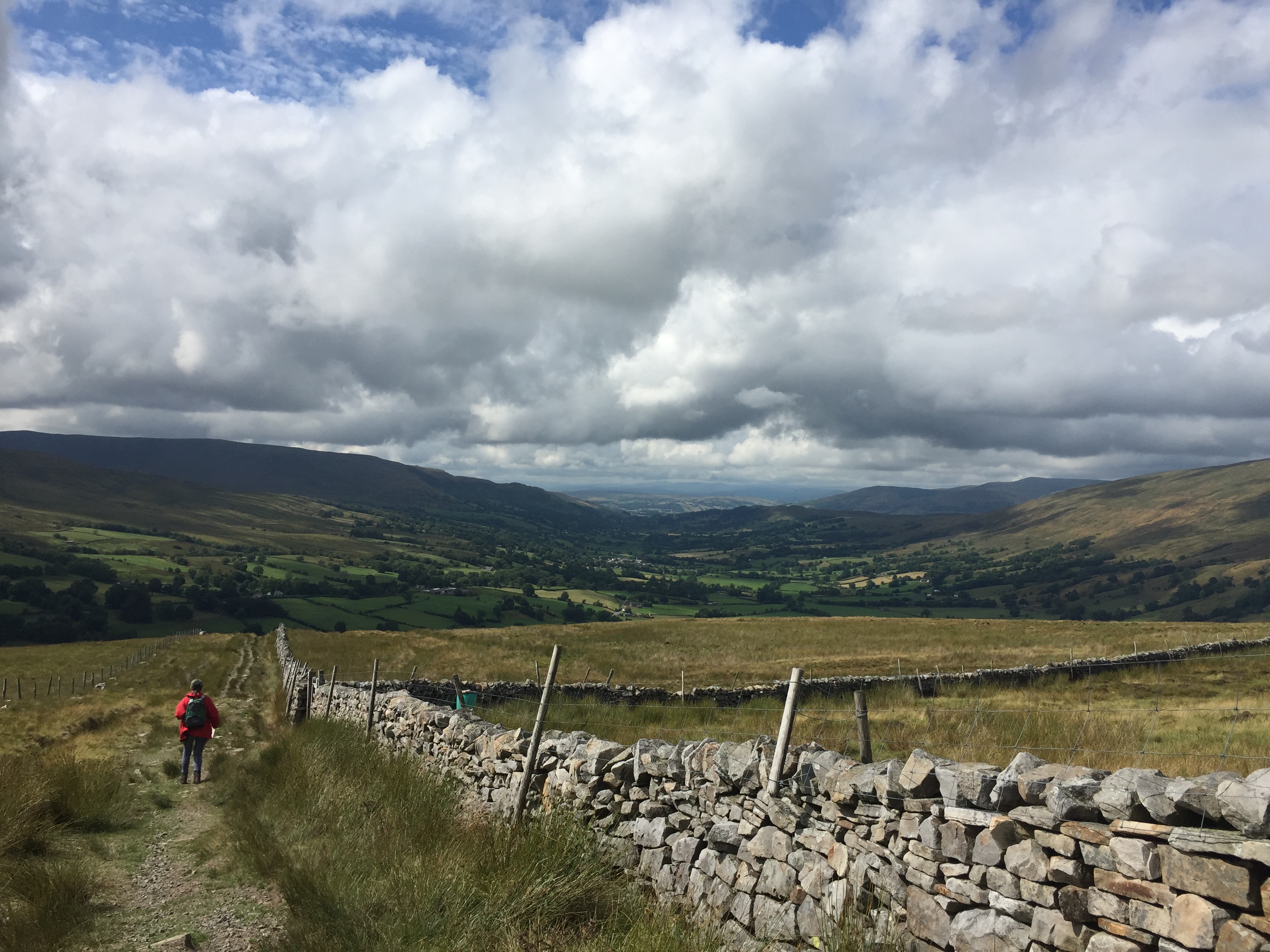


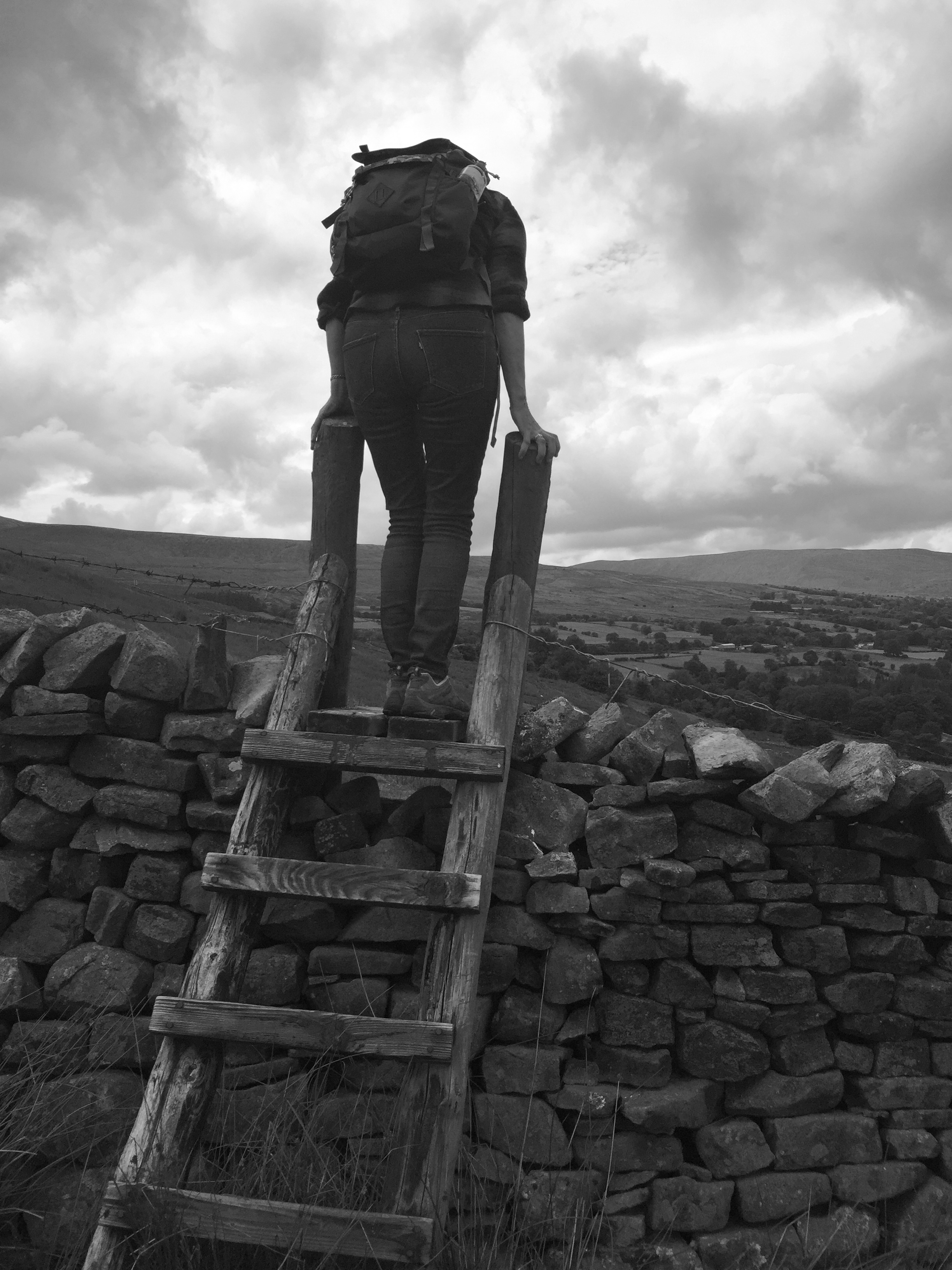


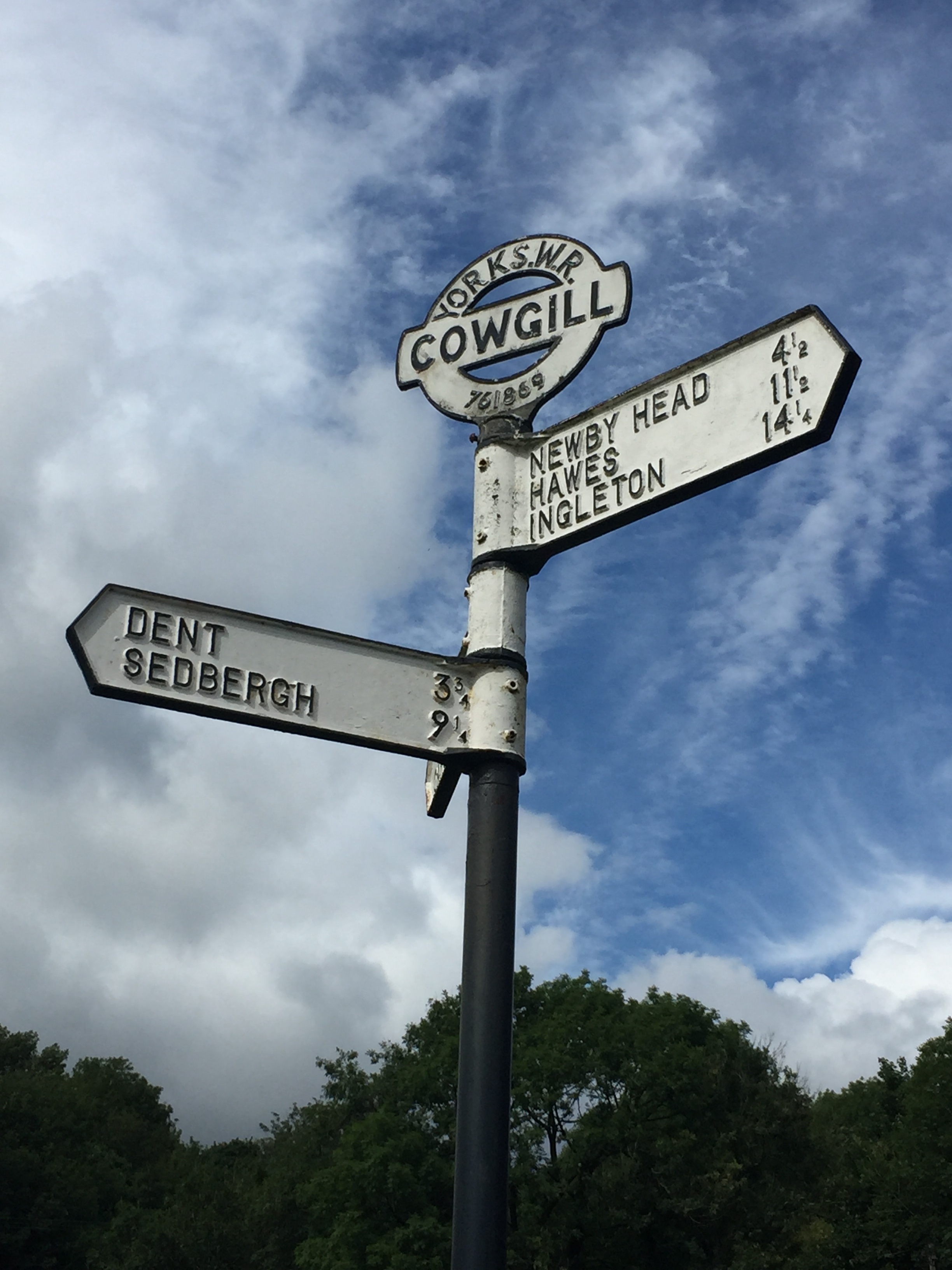



















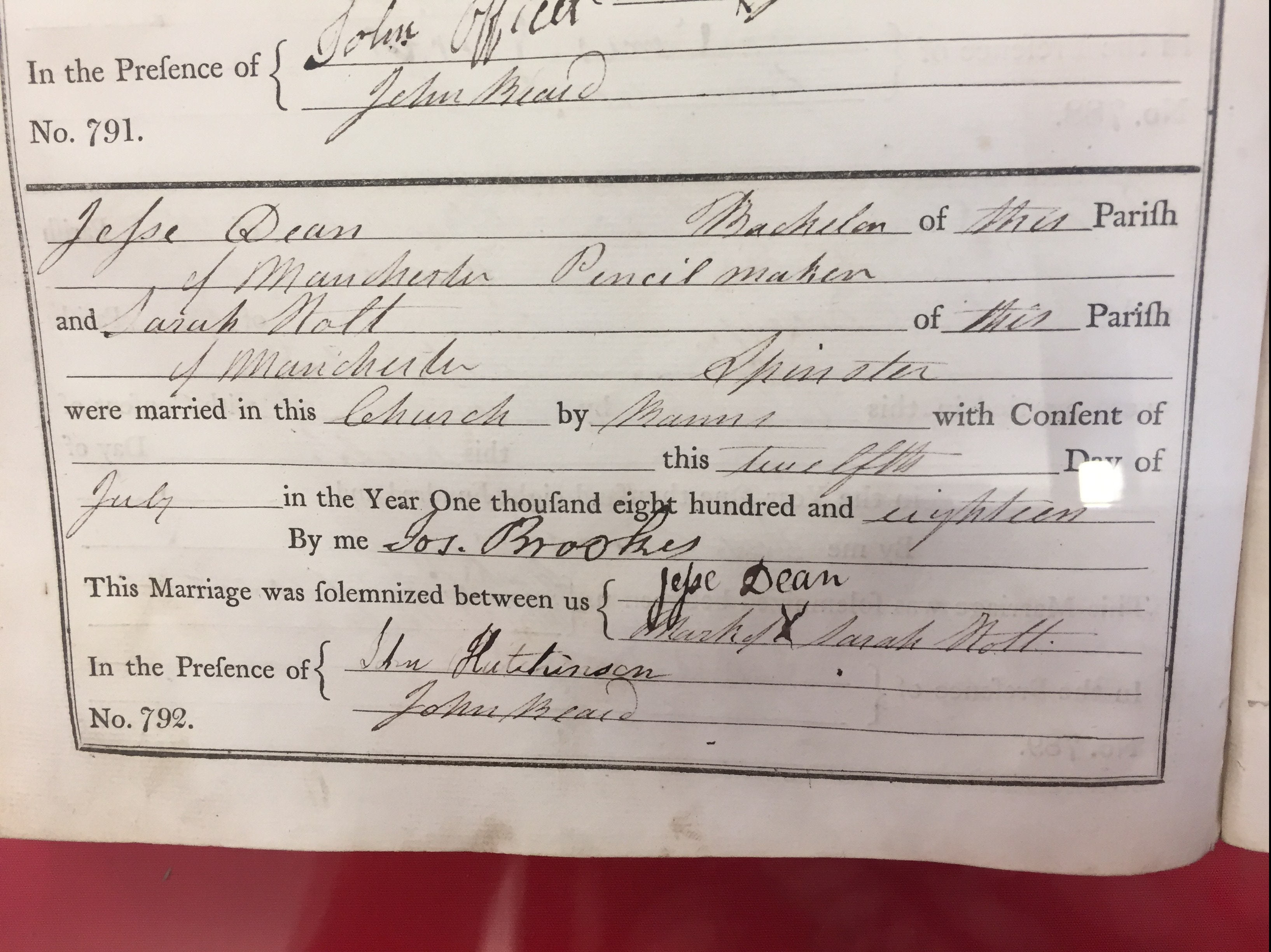





 This is Elizabeth Denton, the organist’s grandmother. She was born in the Cotswolds in 1806!
This is Elizabeth Denton, the organist’s grandmother. She was born in the Cotswolds in 1806! Her son, Samuel and his wife Joanna. – perhaps newly weds. If so, the date is 1863. They began life in Stroud, Gloucestershire but between 1877 and 1880 they moved to Lancashire, to the Manchester area. This was during the height of the industrial revolution in Manchester. Perhaps he thought there’d be more work for him up North.
Her son, Samuel and his wife Joanna. – perhaps newly weds. If so, the date is 1863. They began life in Stroud, Gloucestershire but between 1877 and 1880 they moved to Lancashire, to the Manchester area. This was during the height of the industrial revolution in Manchester. Perhaps he thought there’d be more work for him up North.


 This photo, taken in 1989, shows Samuel’s grandson on a bench at Holy Trinity Church in Stroud. The dedication on the bench reads ‘In memory of Samuel Denton, 1843-1921, and his son, Herbert Vernon, 1873-1961.’ Unfortunately the bench is no longer there.
This photo, taken in 1989, shows Samuel’s grandson on a bench at Holy Trinity Church in Stroud. The dedication on the bench reads ‘In memory of Samuel Denton, 1843-1921, and his son, Herbert Vernon, 1873-1961.’ Unfortunately the bench is no longer there.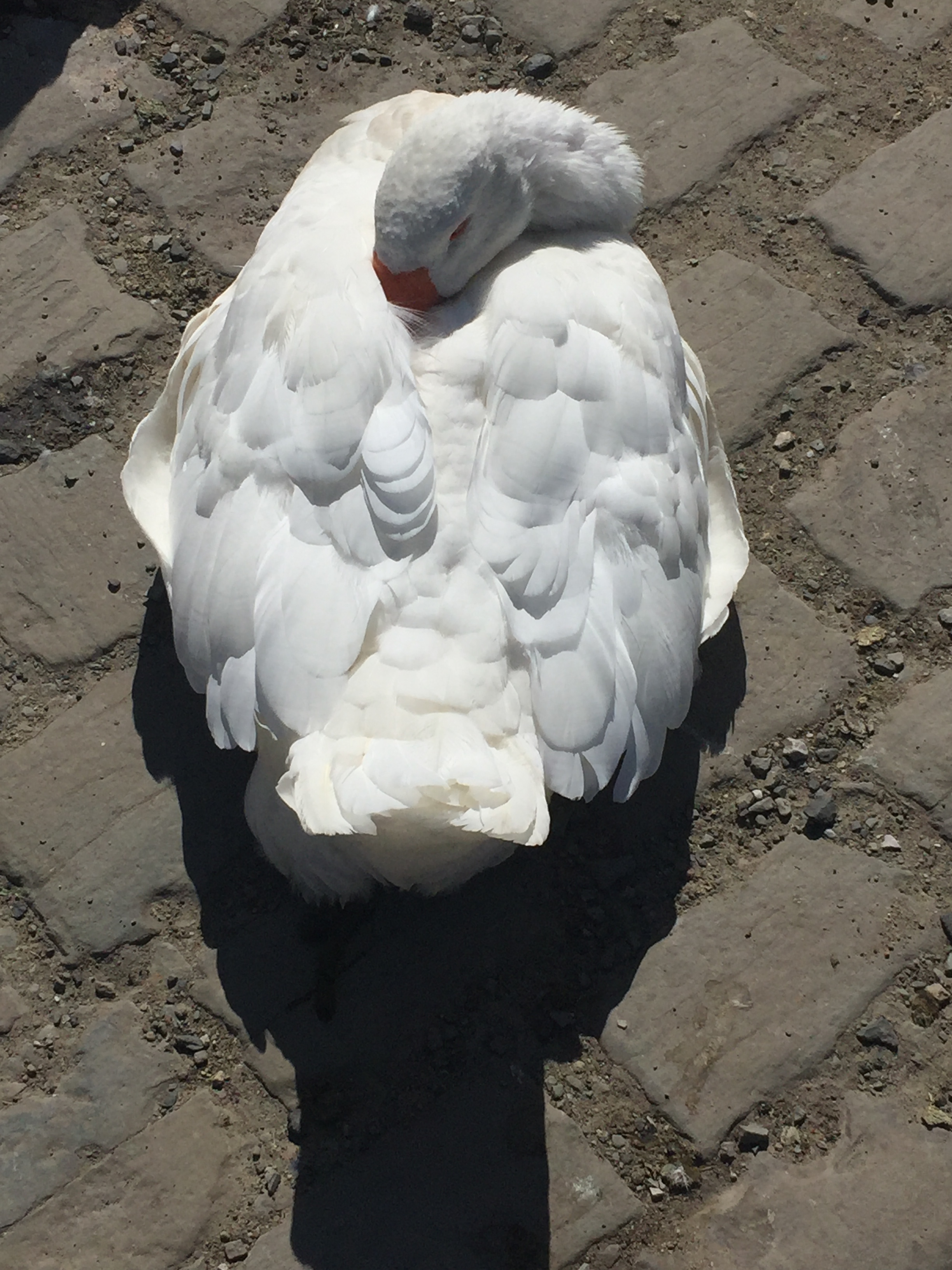

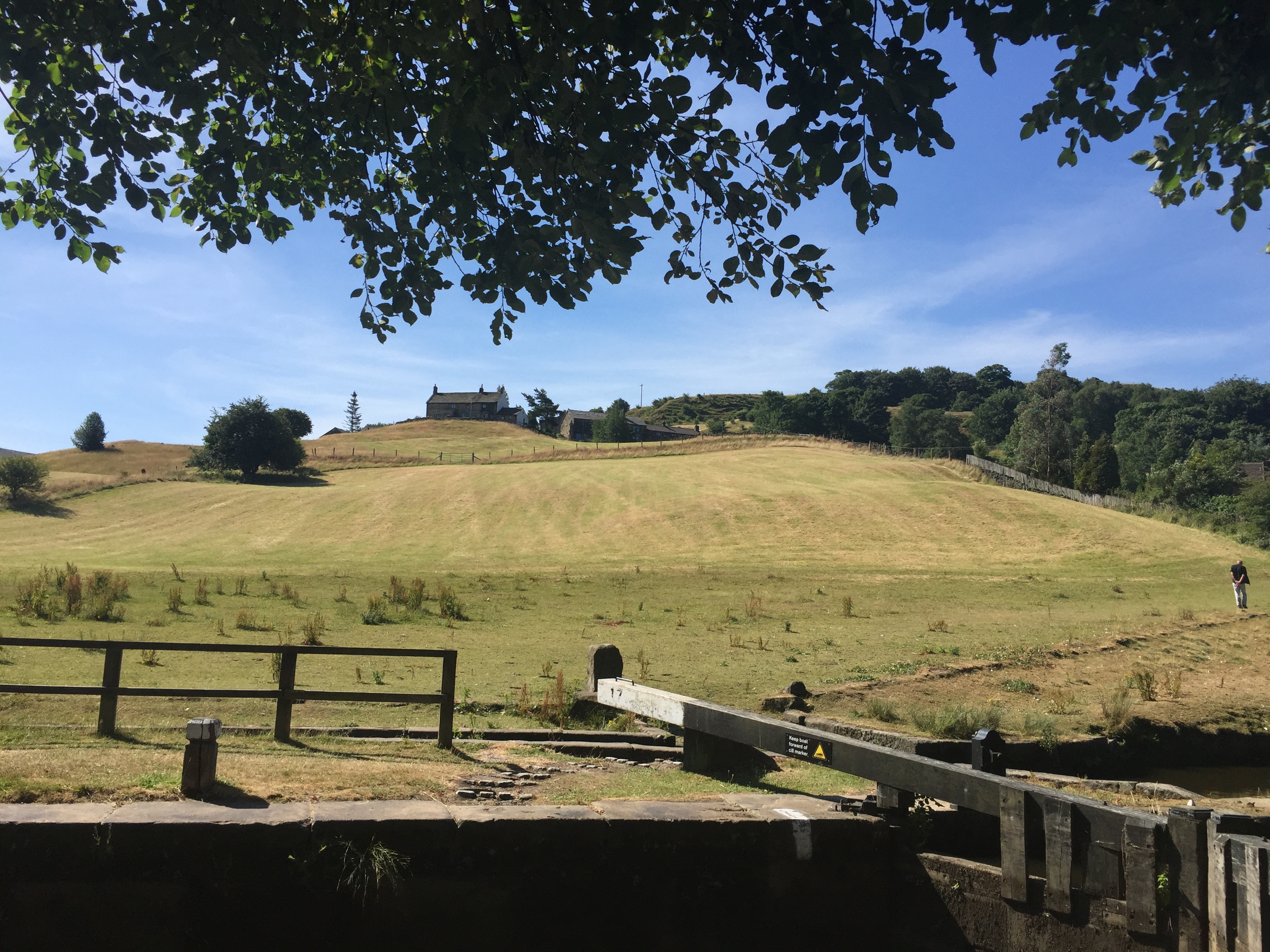

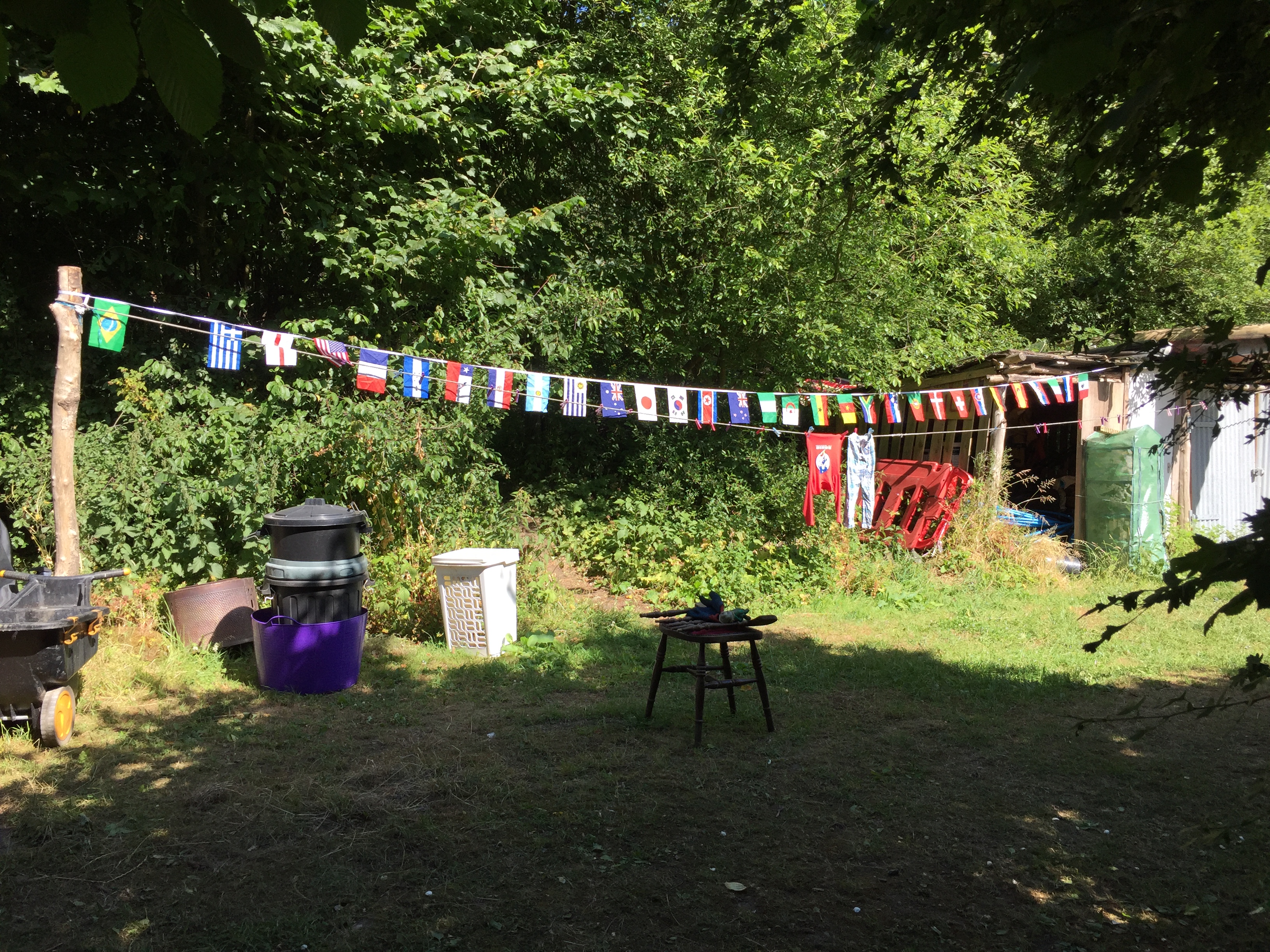
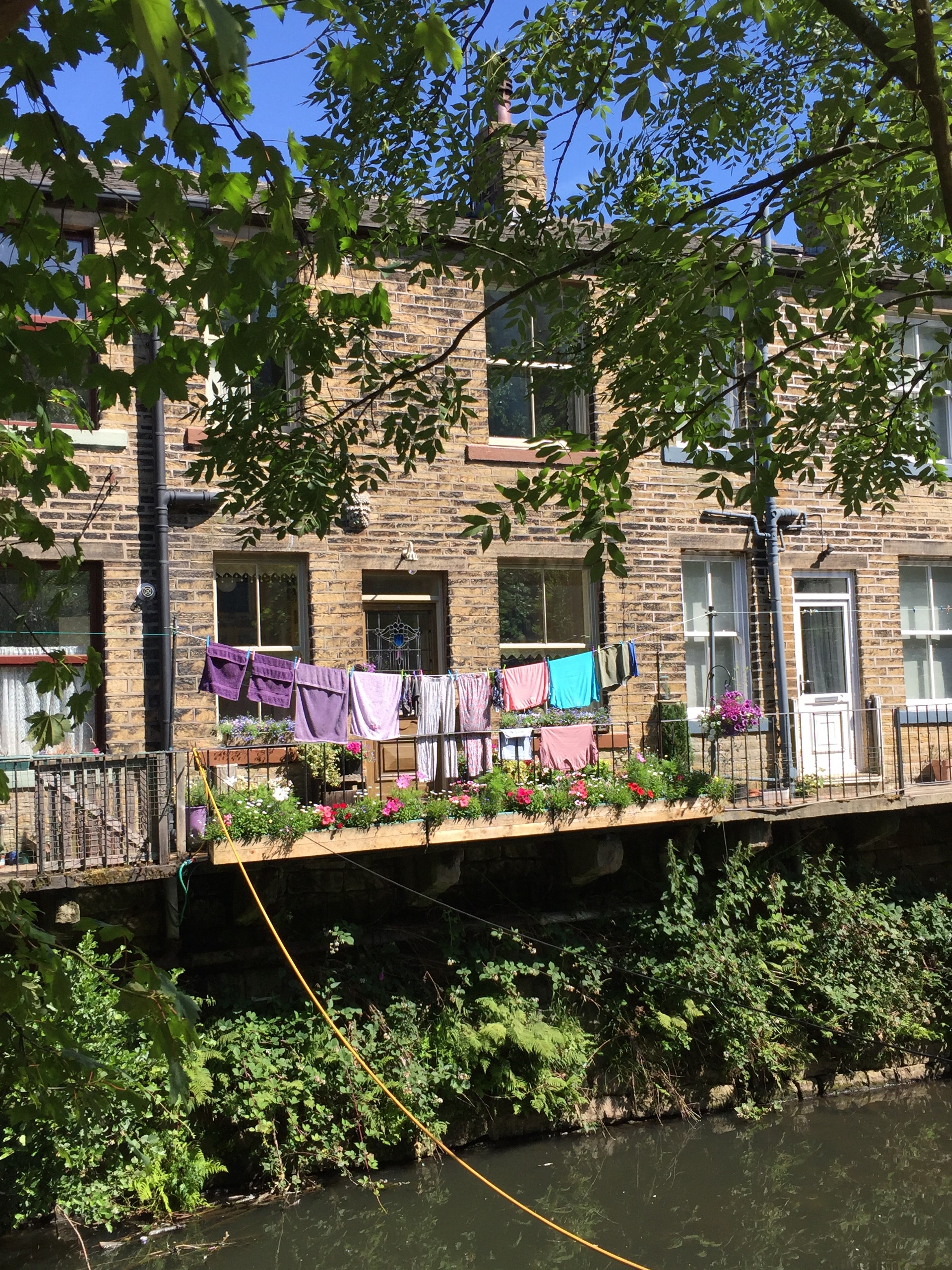

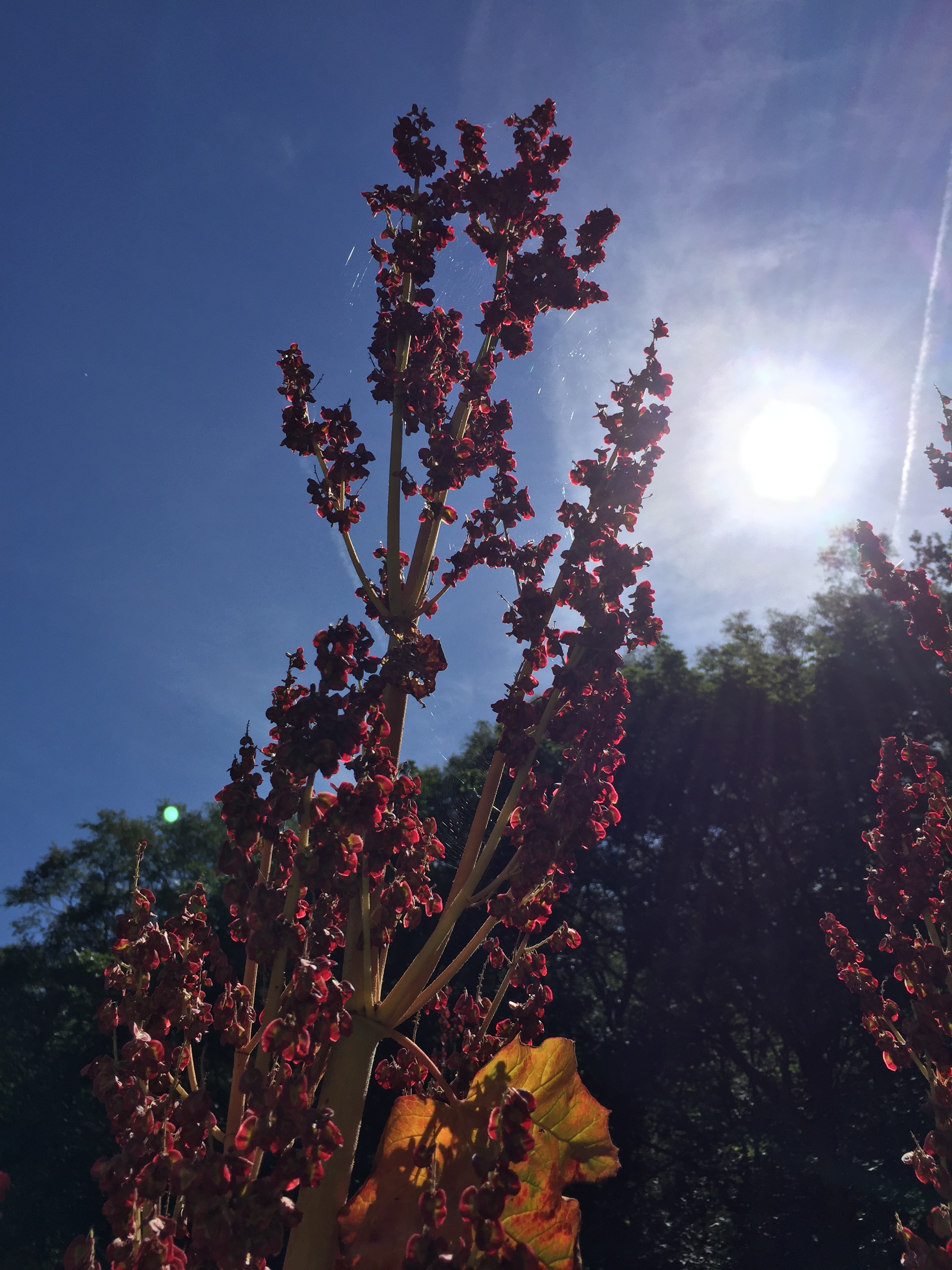














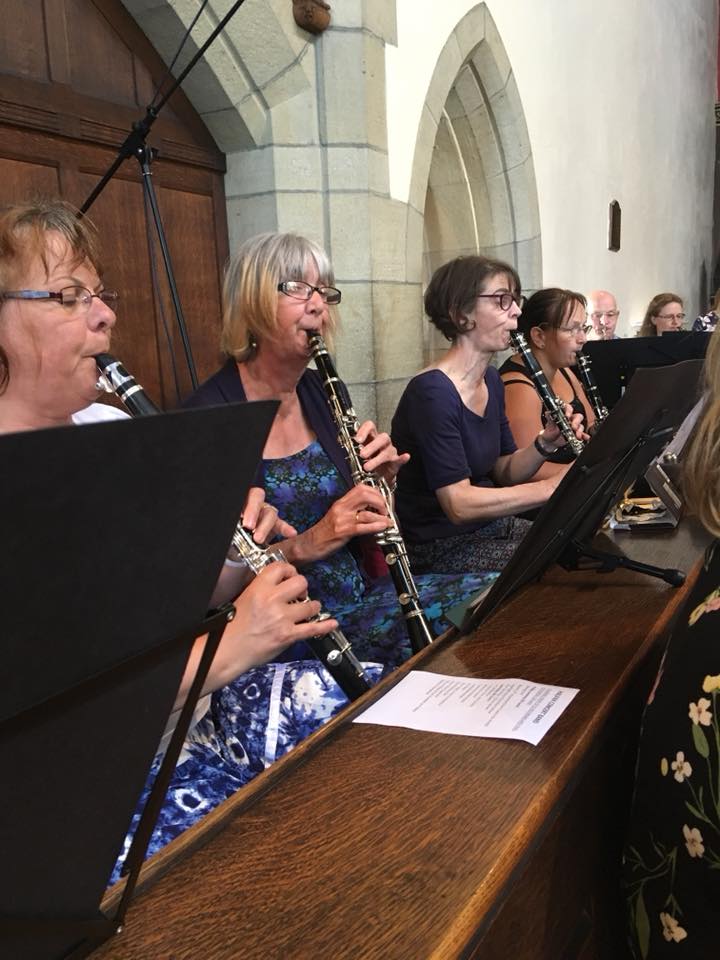
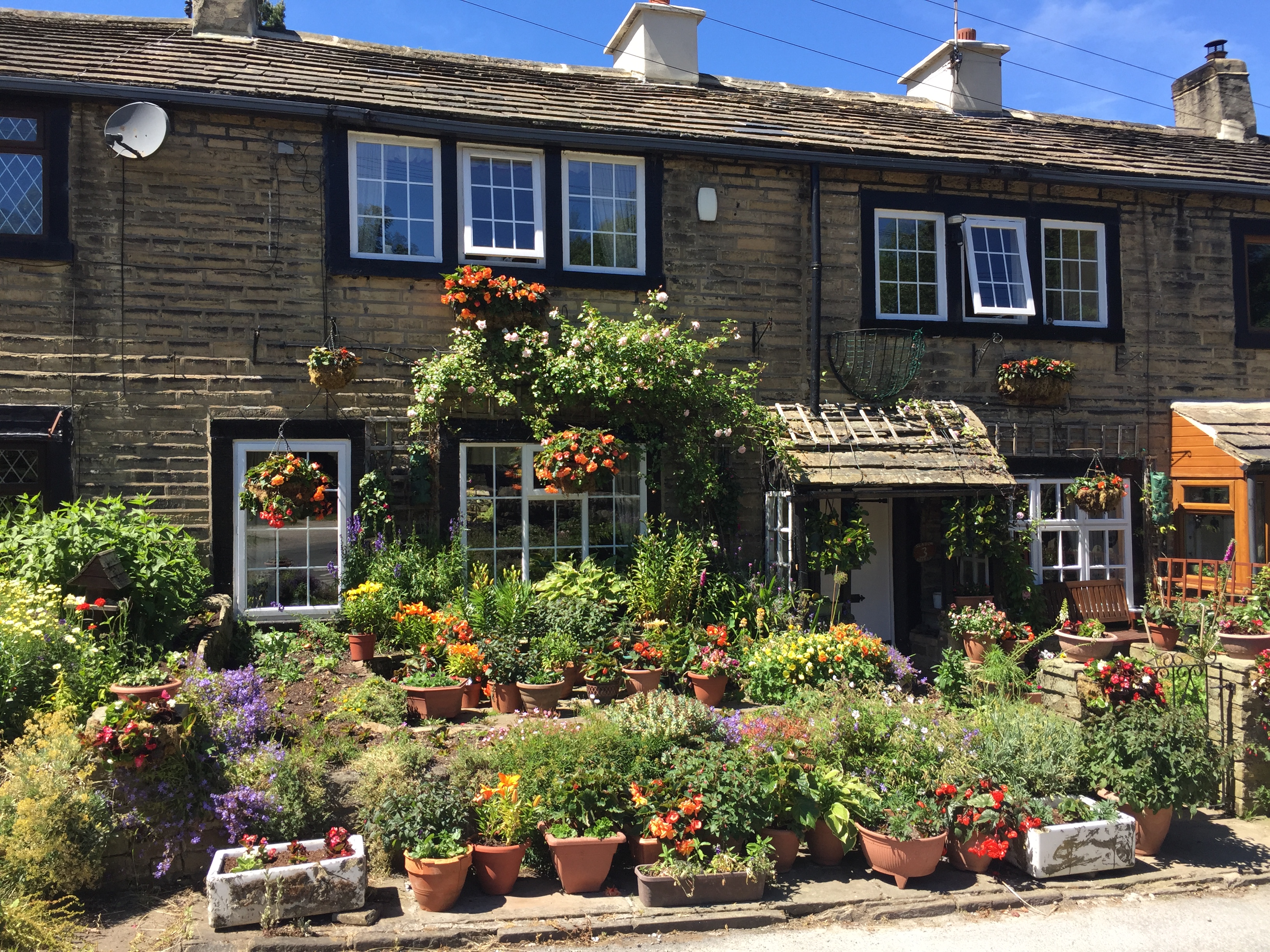 On a day when the temperature in Hebden Bridge was going to soar into the 80’s I decided to go for a hike. I took the bus up across the moors to Haworth and had planned on having a light lunch in my favourite tea shop, but there was absolutely no shade in Haworth’s main street so I had a glass of lemonade, picked up a pastie from the vegan pastie shop and headed out towards Stanbury, thus avoiding all the tourists in the centre of town, close to the parsonage. I met a few other idiots like myself hiking along the footpaths out towards the dam and the Friendly pub where I’d celebrated my birthday.
On a day when the temperature in Hebden Bridge was going to soar into the 80’s I decided to go for a hike. I took the bus up across the moors to Haworth and had planned on having a light lunch in my favourite tea shop, but there was absolutely no shade in Haworth’s main street so I had a glass of lemonade, picked up a pastie from the vegan pastie shop and headed out towards Stanbury, thus avoiding all the tourists in the centre of town, close to the parsonage. I met a few other idiots like myself hiking along the footpaths out towards the dam and the Friendly pub where I’d celebrated my birthday.





Recent Comments